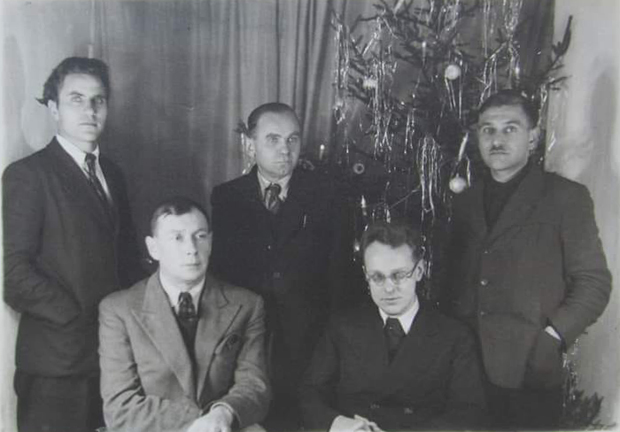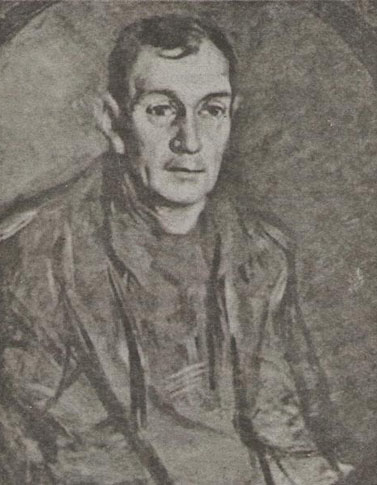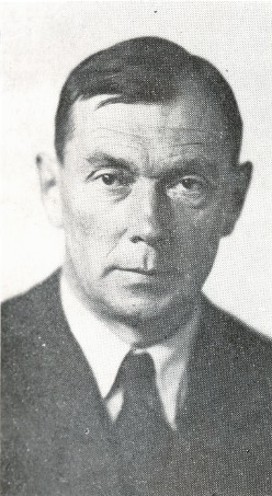Malaniuk, Yevhen
Malaniuk, Yevhen [Malanjuk, Jevhen], b 20 January 1897 in Novoarkhanhelsk, Olviopil county, Kherson gubernia, d 16 February 1968 in New York. (Photo: Yevhen Malaniuk.) Poet and political and community activist. He became an officer of the Army of the Ukrainian National Republic in 1917 and was interned in Kalisz, Poland, in 1920. He graduated from the Ukrainian Husbandry Academy in Poděbrady in 1923. Toward the end of the Second World War he resettled in Germany, and then he emigrated to the United States. He founded the literary journal Veselka (Kalisz) with Yurii Darahan and continued to publish it in 1922–3. Published collections of his poetry include Stylet i stylos (The Stiletto and the Stylus, 1925), Herbarii (Herbarium, 1926), Zemlia i zalizo (Earth and Steel, 1930), Zemna madonna (The Earthly Madonna, 1934), Persten’ Polikrata (The Ring of Polycrates, 1939), Vybrani poeziï (Selected Poetry, 1943), Vlada (Power, 1951), Poeziï (Poems, 1954), and Ostannia vesna (The Last Spring, 1959). He also published a longer poem, P'iata symfoniia (The Fifth Symphony, 1953), and a number of collections of essays, including Narysy z istoriï nashoï kul’tury (Essays in the History of Our Culture, 1954), Do problemy bol’shevyzmu (On the Problem of Bolshevism, 1956), and Knyha sposterezhen’ (A Book of Observations, 1962). An edition of his selected works with extensive annotation and a bibliography, Zemna Madonna (The Earthly Madonna), was published in 1991 in Prešov.
His poetry is one of the better examples of the literary resurgence of the 1920s and 1930s. He was a member of the vistnykivtsi, made up of literary contributors to Dmytro Dontsov's journal Vistnyk. His work was influential in émigré circles, in Western Ukraine, and in the Ukrainian Soviet Socialist Republic, where he was under constant attack by official critics, who called him a Ukrainian fascist.
The style and engaged content of his poetry emerged as a result of his generation's anger and frustration at Ukraine's subjugation, at the defeat of the struggle for independence (1917–20), and at the ongoing tragedy caused by Moscow's domination of Ukraine. His anger was directed not only at external forces but also at internal weaknesses, such as the Little Russian mentality, anarchism, lack of national discipline and organization, and the domination of emotion over intellect. His poetry is accordingly characterized by dynamism, the frequent use of words with shock value, pathos, prophecy, and reflections on the past. He used mostly regular strophes, with classical meter (he favored the energy of iambs) and rhyme schemes, and was inventive in his use of visual imagery. According to Volodymyr Derzhavyn, ‘Only partially imbued with classicism, his poetry ranges for the most part between symbolism and the baroque (or romanticism) with a preference for the latter.’
Yurii Lavrinenko
[This article originally appeared in the Encyclopedia of Ukraine, vol. 3 (1993).]
.jpg)


